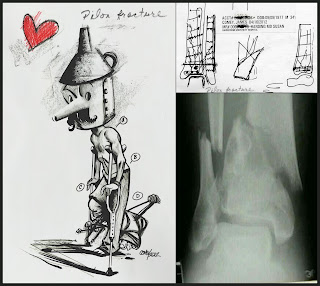Forty six years ago, my head exploded.
The year was 1966. I was a freshman at West Chester State College, beginning my undergraduate training to become an English teacher. I'd just completed four years of an arduous Jesuit education at St. Joseph's Prep. I'd commuted by trolley car, elevated train and subway over 700 times from the suburbs into the streets of North Philadelphia. Police sirens, screeching subway wheels, blaring traffic on Broad Street, and congested concourses underneath City Hall were my white noise while I navigated my way through Latin and French translations, obscure mathematical concepts, and the gobbledy gook of scientific charts and formulas.
Now I found myself in West Chester, PA, 30 miles outside the city, where the sky was blue, the streets were sleepy, and I knew no one. Classes didn't meet every day. Many professors didn't take attendance. And assigned readings in mandatory freshman subjects that had no bearing on my life were dull and not due for several days.
Because I have always sought refuge in a library when I feel isolated and alone, forty six years ago I found myself before a book in the Francis Harvey Green Library. I don't know why this particular book caught my attention. Maybe it was its green cover, or its images of trees and mountain tops, or its title. Or maybe it was my time to find and read this particular book.
I picked it up and read the opening line: "In a hole in the ground there lived a hobbit."
Four years of Latin and Roman phrasing and mythology crumbled before the powerful Germanic and Scandinavian imagery that began to flow along the pages. A small, merry village of hairy-footed creatures, a wizard with uncertain motives, a gang of boisterous dwarfs, a perilous journey to find a dragon. I had never tasted such wonderful words. A single small creature had to find the pluck to venture away from all that he knew, surrounded by new companions and new enemies. I didn't know that Vietnam Nam and the draft board was just around the corner. I didn't know a girl was going to burn herself to death outside the library two years later in protest to the war. I didn't know Martin Luther King was going to be shot to death my junior year, or Woodstock was going to erupt my senior year, or four students would be killed at Kent State in 1970 for protesting. The revolution was only a tiny, unfelt wind in 1966. And I was a lonely kid who had found a book, and then a trilogy, that offered an imaginative place where courage and determination and the magic that comes from caring can make a difference in the world.
Today is the 75th anniversary of the publication of The Hobbit. Tomorrow, the 22nd of September, is the celebrated birthday of both Bilbo and Frodo. These two creatures, along with their creator, blew apart my imagination close to half a century ago. And I thank them for it.
“Still round the corner there may wait
A new road or a secret gate
And though I oft have passed them by
A day will come at last when I
Shall take the hidden paths that run
West of the Moon, East of the Sun.”
― J.R.R. Tolkien
A new road or a secret gate
And though I oft have passed them by
A day will come at last when I
Shall take the hidden paths that run
West of the Moon, East of the Sun.”
― J.R.R. Tolkien
Copyright (2011) by James Hugh Comey






